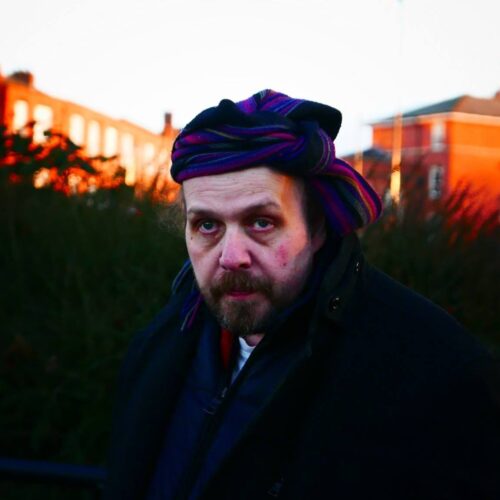
What's in a name …?
Looking up from the programme, a puzzled expression crossed the child’s face as he asked: ‘What’s a lieder recital?’ ‘A song recital’. ‘So what’s lieder?’ ‘German for songs’. ‘So why . . . .?’.
And well might the apparently naïve question be asked of a recital of chansons too.
Is it not yet another curiosity of our musical communication that we seem to need the quite unnecessary incorporation of words from other languages in preference to perfectly adequate simple English words? Do they do this in non-English speaking countries I wonder? We do not usually advertise a dal recital of Hungarian songs, or a recital of Iberian canciones or a pesnya recital of Russian masterpieces. Perhaps it is a type of pretentiousness that sometimes goes with a wish to wrap high art in a cocoon of mystery, protecting it from those who adore Tchaikovsky and Gershwin, Rodrigo and Miklós Rózsa!
And another related curiosity.
Why do we decide to refer to The Marriage of Figaro and yet speak of La Traviata? For many of us it would need a double check to hear these pieces referred to as le Nozze di Figaro and the Woman Gone Astray. So it isn’t all one way. Perhaps we are all guilty of using titles foreign to our own language occasionally – they just slip out – but never very consistently.
We tend to refer to Songs of a Wayfarer, The Three-cornered Hat, The Snow Maiden and The Sorcerer’s Apprentice, but not often to the Freeshooter, the Troubadour, Solomon, Songs on the Death of Children or A Prelude to a Faun’s Afternoon. (In case you should wonder, though I am sure you didn’t need to: der Freischütz, Il trovatore, Schelomo, Kindertotenlieder and the last one may well be obvious!)
Cosi fan tutte is always just that, without even knowing what it means, and so is Eine kleine Nachtmusik – though we all seem to know what that means. La fanciulla del West and Meeresstille und glückliche Fahrt are usually translated in English programmes, though Verklärte Nacht isn’t.
While we are highly unlikely to refer to Bartók’s A Kékszakállùherceg vára (Bluebeard’s castle) or the ballet A csodálatos mandarin (if you know Bartók’s music, you might guess that one?) those who pride themselves in frequent concert-going have learnt to master Le Tombeau de Couperin and Le Marteau sans Maître with admirable confidence.
It does however give one a thrilling air of superiority to use the authentic yet less expected titles, and a wonderful opportunity to look around the company with a shocked expression to say ‘But surely you know that piece?’ (Does anyone remember Stephen Potter’s ‘One-upmanship books?) A similar effect is gained by pronouncing Chopin in Polish and savouring the surprise and perhaps admiration (though I’m too old for that now!) when you explain that you simply forgot to use the common French style. So the concert I have seats for this weekend is to hear Beethoven’s Die Weihe des Hauses and Musorgsky’s Kartinki s vïstavki (Ravel’s orchestration again I’m afraid – I wish they would do one of the others) but if you don’t know, they are sure to put the English titles in the programme for you – though I would wonder where you went to school.
And I hope you’ll help me out in that rather classy restaurant afterwards…







Mostly a lot of snobbery I am sure but occasionally foreign words may have no satisfactory equivalent in English.
Just how I feel when people start talking about WINE. Mind you we have to remember that there are also mystifying words in art meant to make others, those not in the know, feel stupid. Doctors and engineers also have a language all their own.
It seems the only answer given to the question of why foreign languages are used in music (specifically to title music, as seems to be the focus of this essay), is that it’s oft simply a matter of pretentiousness and/or oneupmanship.
That’s disappointing.
The writer alludes to the idea that feeling can be modified through foreign languages when he states “wrap high art in a cocoon of mystery”, and it would have been quite wonderful if that motion had been expounded. Indeed the question is even raised of whether or not other cultures do the same thing, which would have been a perfect way to dive into the marrow this subject! Because as a matter of fact, they do, but we have to dig a little in back in time to find out more about this. This historical musicology would probably have some delightful answers for us.
Unfortunately none of this is really covered, rather half of the article is spent listing various titles and translations, seeming to attempt a light oneupmanship of its own – “but if you don’t know [the translation], they are sure to put the English titles in the programme for you – though I would wonder where you went to school.”
Foreign languages are like flocks of birds who so many times fly across boundaries drawn in the sand. When using Google translator the literal or mechanical translation in a word for word manner, may take on entire transformation of meaning. Of course then that wouldn’t make it clear, so interpretation is used to accompany translation.
When I travel to a foreign country, I love listening to the cadences of words I don’t understand the meaning of. In music and language, it seems to be a matter of right-time-right place: for example, a full-blown Bach oratorio in its original language can sometimes seem to this foreigner a bit too dramatic and heavy, yet sung in English seems to bring out hidden subtleties (in the music, not the libretto) – and there’s one of those damn foreign words again! Yet smaller ensemble (there’s another one!)pieces can come alive in the original German.
What I’m trying to illustrate is that Patric’s observation of the seemingly random musical language mix is rooted within the borrowed and adapted maze of the English language – it is a derived and shared language and speech.
Some of the choices, I think, come down to romanticism and emotion rather than snobbery. A personal example: I’m not a fan of the operatic style, but once, when sitting in the square on a fine spring day in Lucca, there suddenly came from some hidden corner a tenor practising a Puccini aria, which subtly floated over the square, and seemed as natural as the breeze and the sunshine. An English version would have sunk it like a stone, but the native language soared.
Good old Donald Rumsfeld (or it might have been Cheney)gave the classic gaffe (sic!) regarding mixture of languages when he got angry with the French over not helping in Iraq: “Detente? I’ll bet the goddamn French haven’t even got a word for Detente!”
In popular music – rock music, Blues, jazz etc etc – English seems to be the main medium the world over. I have witnessed people sing words of Beatles songs quite happily without knowing the meaning of what they sing. The language travels the world with the music and we all know that this has been one of the ways in which English has become so dominant across the world. Some music is inseparable from the words it was written for and I think this is why they so often remain in their original language. (Not that I know anything about Music).